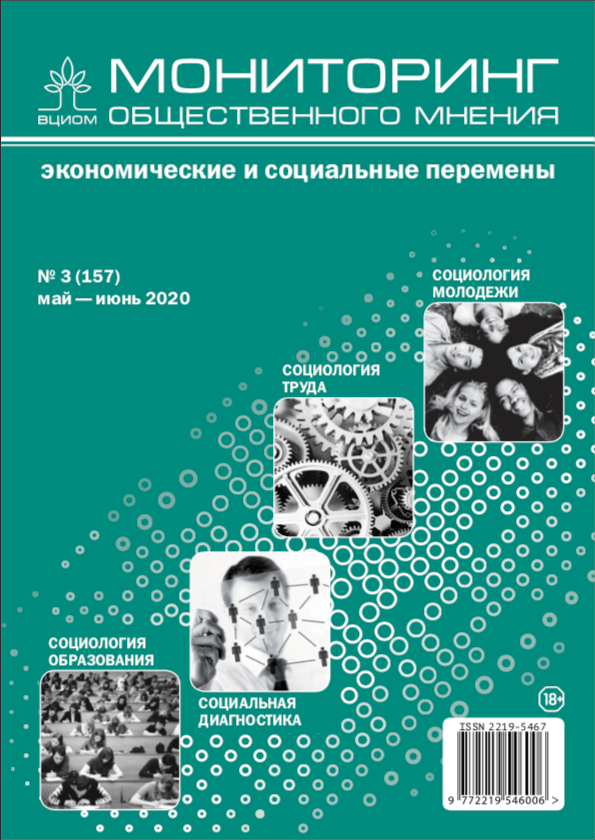Maternal Gatekeeping in Russia: Young Fathers about Mothers and the Barriers to Access Children after Divorce
DOI:
https://doi.org/10.14515/monitoring.2020.3.1680Keywords:
gatekeeping, divorce, fatherhood, masculinity, motherhood, child-related disputes, child interestsAbstract
The article is devoted to the study of gatekeeping practices, namely the barriers raised by mothers to limit the access to children, as perceived by the divorced young fathers. Parental gatekeeping is defined as a dynamic and reciprocal process of creating barriers, establishing control, bringing accusations that prevent from the development of common rules for interaction and the achievement of parental cooperation in the interests of the child during and after the divorce. The authors conclude that the identity of the divorced young fathers is influenced by the so-called “wounded masculinity”. The phenomenon captures painful experiences of hegemonic masculinity, the crisis of male identity due to a loss in the struggle for a dominant position in the family and manifests itself through the feeling of insolvency, the fear of being seen as weak and emotionally wounded resulting in resentful feelings and aggression.
The authors present the results of a study based on the interviews with 18 divorced young fathers and 5 experts in family disputes on determining the child’s place of residence and the visitation procedure for the non-custodial parent. Based on the criteria for goals and means for achieving the goals, the authors suggest a typology of maternal gatekeeping practices. The goals of maternal gatekeeping are as follows: mothers’ desire to alienate the father from the child and “reset” their own life with the child, discrediting the father in the eyes of the child and the social circle, revenge, demonstration of mother’s dominance, obtaining material benefits. The authors analyze various strategies of maternal control over the father’s daily interactions with children, strategies to limit or terminate father’s parental rights, financial support and alimony. Four models of post-divorce fatherhood are identified: “father as a victim”, “absent father”, “father fighting for his rights”, and “involved father”. The authors propose to use the results of the study in the following fields: the typology of gatekeeping barriers and practices can be applied in the diagnostic assessment, examination and social facilitation for the divorced parents and their children, family mediation, divorce prevention, development of awareness programs to prepare youth for family life and improve family culture, improvements to joint legal custody, etc.
Acknowledgments. The study was funded by Russian Foundation for Basic Research, project no. 19-011-00543.
Downloads
Published
How to Cite
Issue
Section
License
Copyright (c) 2020 Monitoring of Public Opinion: Economic and Social Changes Journal (Public Opinion Monitoring) ISSN 2219-5467

This work is licensed under a Creative Commons Attribution-NonCommercial-ShareAlike 4.0 International License.






